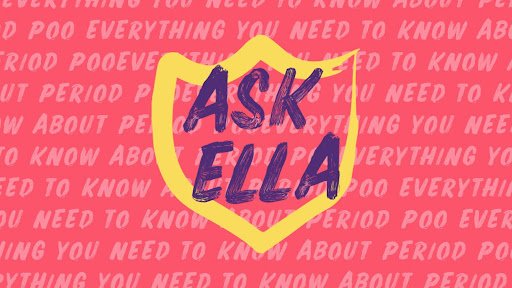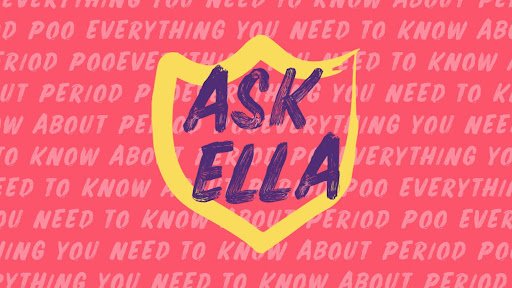Everything You Need to Know about Period Poo
If you’re a person who has periods, you may notice a change in your poo right before and during your period. Some people experience looser stools, diarrhoea, abdominal cramps, smellier poos and having to poo more often.
So why does that happen and is there anything you can do about it? Read on for everything you need to know about period poo.
A (very brief) guide to the menstrual cycle
There’s a lot going on in your body. The menstrual cycle begins on the first day of your period and lasts until you get your next period. This is known as the menses phase of your cycle. On day one, your uterus sheds its lining which comes out as the period.
After your period is over, the next phase of your cycle begins. This is known as the follicular phase and it lasts until you ovulate. During this phase your oestrogen levels rise, stimulating the lining of the uterus (known as the uterine lining) to grow and thicken as it prepares for a potential pregnancy.
The next phase is the ovulation phase. Around day 14 (but it greatly depends on the average length of your personal cycle as well as any changes within that particular cycle) you ovulate, so one of your ovaries releases an egg which makes its way into the fallopian tube to wait for sperm to potentially fuse with it. Once an egg is released, it will survive for 12-24 hours. If it does not fuse with sperm, the egg will be dissolved back into the body and will shed along with the uterine lining during your next period.
The next and last phase of your menstrual cycle is the luteal phase. Your levels of progesterone rise to help prepare the uterine lining for potential pregnancy. If pregnancy does not occur, oestrogen and progesterone levels drop and you may experience symptoms of premenstrual syndrome (PMS).
The science behind period poo
Before you get your period, progesterone levels rise to prepare the uterine lining for potential pregnancy. If pregnancy doesn’t occur, progesterone levels drop and your body starts producing more prostaglandins.
“Prostaglandins are fatty acids produced by the body that cause your uterus to contract to begin shedding the lining of your uterus,” says Sara Holt, a certified nurse* and midwife. “For some people, diarrhoea can occur as a result of prostaglandin release, especially for people who produce higher levels of prostaglandins.”
Why do you poo more when on your period?
Progesterone can relax your stomach muscles, causing food to travel more slowly through your digestive tract. Many people with uteruses experience constipation during pregnancy as their progesterone levels rise. When progesterone levels drop, it can speed the bowels up and lead to looser poos and needing to poo more often.
Excess prostaglandins that enter the bloodstream can have the same effect that they do on the uterus on other areas of your body – including your bowels. This can lead to period diarrhoea or changes in your bowel movements.
Why does period poo smell different?
Many people dealing with premenstrual syndrome (PMS) experience a drop in the neurotransmitter serotonin. This can trigger a craving for carbs, as the body uses carbs to make serotonin. Your body may particularly crave simple carbs, like chocolate, because simple carbs are metabolised quickly and so they can give your body a quick serotonin boost. Higher levels of progesterone can also give you unusual cravings, so you might find yourself craving different foods than usual the week before your period.
“Higher levels of progesterone that happen in the second half of the cycle can cause us to change our diets during this time – especially during the last few days before bleeding,” says Sara. “This along with the PH changes in the vagina from menstrual blood can cause a change in odour. Paying attention to your diet in the days leading up to your period can help, particularly avoiding refined sugars and carbs and turning more towards whole foods like fruits and veggies is a good (albeit not very fun) idea.”
If you find that you eat different foods around your period – and if these foods tend to be of the junk variety – then this can affect the smell, consistency and regularity of your bowel movements.
Can you poo with a tampon?
You can, but sometimes the motion of having a bowel movement can push the tampon out, partially or all the way. You also want to avoid cross contamination and not get any poo on any part of the tampon – including the string – as bacteria could get into your vagina and cause an infection.
Is there anything you can do to limit the effects of period poo?
Eating foods rich in vitamins and minerals can help make sure your body has what it needs to stay healthy and get all the diverse nutri. “Foods with vitamin E include sunflower seeds, almonds and peanut butter,” says Sara. “Vitamin B6 can be found in food sources like bananas, chickpeas, lean beef, chicken breast, and oatmeal (supplements could be used as well). Additionally, it is always a good idea to work on developing the gut microbiome to keep you regular throughout the month and to ameliorate the effects of prostaglandins around the period. This includes eating many different fruits and veggies throughout the month, adding fermented foods frequently (sauerkraut, good quality kombucha, kimchee) and probiotic foods such as real yoghurt.”
Everyone’s body is different and so how they experience their period will also be different. If you experience frequent diarrhoea during your period, you may want to up your soluble fibre intake.
This kind of fibre, which dissolves in water to create a gel-like consistency, is found in peas, oats, beans, apples and citrus fruits. It can help remove excess fluid from your stool, so it may help combat diarrhoea. Remember that diarrhoea can be dehydrating, so drink plenty of water and get some electrolytes involved. Stress can also contribute to diarrhoea, so relaxation techniques, meditation and yoga can be really beneficial.
If you are experiencing constipation, you may want to try eating more insoluble fibre which is found in whole wheats, nuts, beans and vegetables. Insoluble fibre bulks up your stool and encourages things to move through your digestive system. Exercise can also help relieve constipation and trapped gas, plus it can also elevate your mood – which can be very helpful if you’re experiencing PMS.
“It’s essential to listen to your body, stay hydrated, eat a balanced diet, and practice self-care during your menstrual cycle to manage any discomfort or changes in bowel movements effectively,” says Dr. Martha Tara Lee*, Relationship Counselor & Clinical Sexologist. “While experiencing changes in bowel movements during menstruation is common for many individuals, persistent or severe gastrointestinal symptoms during your period could potentially be a sign of an underlying health issue.”
“Conditions such as irritable bowel syndrome (IBS), endometriosis affecting the bowel, inflammatory bowel disease (IBD), or other gastrointestinal disorders may present with exacerbated symptoms during menstruation. If you consistently experience severe abdominal pain, persistent diarrhoea or constipation, blood in your stool, or other concerning gastrointestinal symptoms during your period, it’s important to consult with a doctor for a proper evaluation and diagnosis.”
*The medical professionals quoted in this article do not endorse any products or brands.
References
https://www.washingtonpost.com/wellness/2023/03/27/period-poop-normal-hormones/
https://health.clevelandclinic.org/why-do-you-poop-more-on-your-period
https://bmcwomenshealth.biomedcentral.com/articles/10.1186/1472-6874-14-14
https://sexualhealthalliance.com/nymphomedia-blog/down-in-the-dumps-an-exploration-of-period-poops
https://www.thewomens.org.au/health-information/periods/periods-overview/about-periods
https://www.healthline.com/health/pregnancy/how-long-does-ovulation-last




